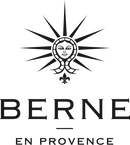The world of wine is rather complex for the uninitiated. Between the different subtleties between each wine, the winemaking methods, or even the professionals who are involved in the making of the wine, it is not easy to master everything. Let's start by defining the people who work the vineyard. Some call them winegrowers, others call them winegrowers, and yet, they are two very distinct professions. So let's see the difference between viticulturist and winemaker .
The winegrower: the expert in vine cultivation
The winegrower is the professional found at the heart of the vineyard , in the land. Responsible for cultivating the vines , he is the one who chooses the grape varieties according to the characteristics of the terroir, and who ensures the proper development of each vine. Like a gardener in his vegetable garden, the wine grower works the land and selects the viticulture techniques he wants to apply: organic farming, conventional farming, biodynamic farming... He also chooses to work the vines by hand, or by hand. machine help.
The work of the winegrowers stops at the harvest, when the ripe bunches are collected and transferred to the cellar.
The winegrower's missions are then exclusively in the vineyard:
- Prepare and treat soils before sowing;
- Select the grape varieties, sow and cultivate the vines;
- Ensure the growth and proper development of the plants by applying different techniques (debudding, disbudding, trellising, leaf stripping, etc.);
- Harvester;
- Protecting the vineyard from diseases and frost...
The winemaker: the winemaking expert
It is only after the harvest that the winegrower comes into play. He then takes over from the winegrower, taking charge of making the wine . In other words, it is he who will allow the grapes to transform into wine.
The winemaker's job then consists of carrying out the different stages of wine production : destemming, crushing, skin maceration, alcoholic fermentation, malolactic fermentation, aging, bottling... But his role does not stop there, and the winemaker is often entrusted with the marketing part of the wine bottles of the wine estate . Whether in a boutique, in the estate's cellar, or in a department store, he manages negotiations with distributors and even participates in fairs. Finally, he also takes care of communication around wine, via different channels such as social networks, trade fairs, advertising, etc.
The winemaker exercises a very complete profession, with multiple missions :
- Work in collaboration with winegrowers;
- Follow the wine making process in each of its stages;
- Determine the most appropriate winemaking technique and apply it according to the desired result;
- Monitor the quality of the wine throughout the stages of winemaking;
- Ensure bottling;
- Manage communication and marketing of wine...
Winegrower and winemaker: similar training
There is no standard path to becoming a viticulturist or becoming a winemaker . Generally, winegrowers, viticulturists, and even oenologists, follow common training before specializing. It is then possible to move towards:
- An agricultural wine and vine CAP;
- A Bac Pro farm management and management;
- An agricultural viticulture-oenology BTS...
Alexis Cornu: the oenologist of the Berne estate
Oenologist , this is a third profession that is sometimes confused with the winegrower and the winegrower. Here again, this professional has very distinct missions. This scientific expert specializing in the study of wine is a major ally for the winegrower and winemaker, since he guides them throughout the wine-making process, to help them produce high-quality wine . From the choice of grape varieties to the date of the harvest, including the control of fermentation, oenologists provide expertise that other professionals put into practice.
It is this crucial position that Alexis Cornu occupies within the Château de Berne. An oenologist from the Berne estate , he has specialized over the years in the vinification of rosé wines from Provence, but his skills are limitless, and the love of the vines and the terroir guides his steps.
Working hard to produce elegant wines, the Bern oenologist is entrusted with numerous missions:
- Analyze the vines to choose the best plots;
- Define the best assembly;
- Choose the grape varieties to cultivate;
- Determine the ideal harvest date;
- Present to customers the characteristics of the wines and terroirs of the Berne wine estate;
- Observe nature and the weather to deal with possible difficulties (drought, wind, rain, frost, etc.);
- Testing new winemaking methods until you find the ideal technique...
A wine farm requires the intervention of numerous professionals, who, together, work the vines and the terroir to produce a bottle of quality wine. To discover the work of a team of enthusiasts, go to the Château de Berne , where you will find the wines of Provence imagined by Alexis Cornu, the estate's oenologist.



















